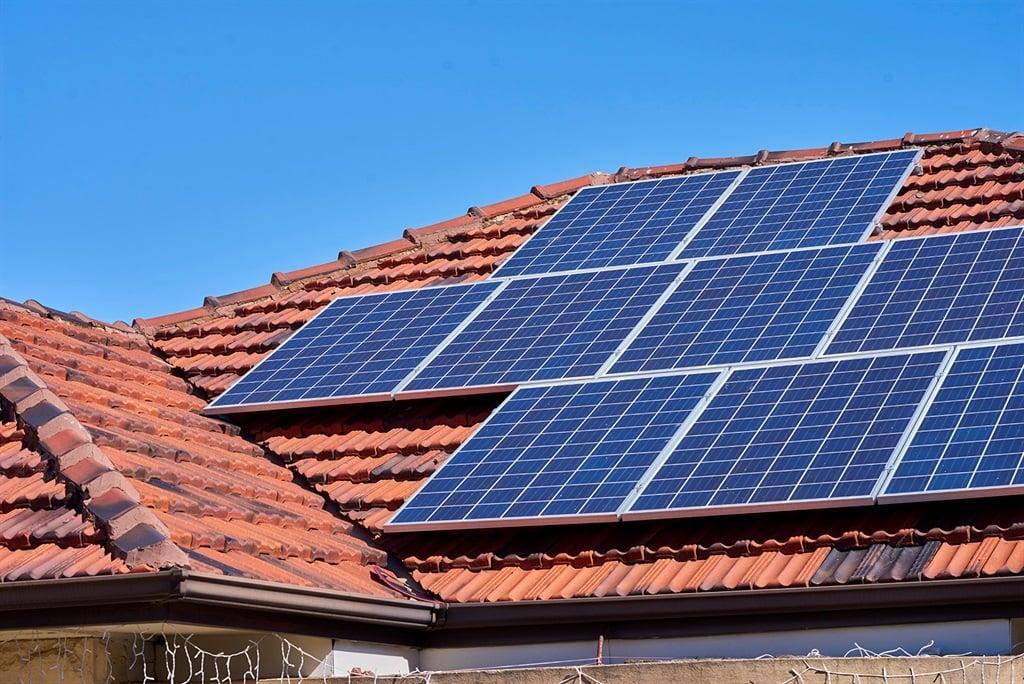Lameez Omarjee
Africa-Press – South-Africa. Government has launched the long-awaited energy bounce-back loan scheme for households and small businesses looking to install solar.
The scheme was first announced by President Cyril Ramaphosa in the February 2023 State of the Nation Address, aimed at allowing small businesses to have the finances to invest in solar equipment so they could overcome the impacts of load shedding.
This was reiterated in the budget speech delivered by Finance Minster Enoch Godongwana.
At the time, Godongwana indicated it would guarantee solar-related loans for small and medium enterprises on a 20% first-loss basis. This means that government will carry 20% of the loss on defaulted loans, so banks don’t have to take the whole loss.
Treasury in a statement on Tuesday indicated that this guarantee also applies to households with rooftop solar.
The scheme is being launched to the benefit of both households and small businesses. It is part of an initiative to help alleviate the “negative impact of continual difficulties resulting from unreliable power supply”, Treasury said.
The scheme, which runs until 30 August 2024, aims to have about 1 000MW of new additional generation capacity over the next 12 months. This should “facilitate resilience” to load shedding for micro and informal businesses too.
This is an additional intervention to the tax incentive that was announced earlier this year – households can qualify for a tax credit of up to 25% of the cost of the solar PV panels, with a cap of R15 000. The incentive to businesses was expanded to 125% in tax deductions for any renewable energy project.
People can apply for both the tax incentives and the energy bounce-back scheme, Treasury said.
Here’s what you need to know:
Who is the scheme targeted at?
The scheme operates under three mechanisms, targeting different groups.
The first mechanism is a loan guarantee for small businesses and households seeking a loan to invest in rooftop solar. “This investment includes solar panels, batteries, inverters, and other installation-related costs,” Treasury said. It also allows loans for the purchase of small portable batteries for informal businesses seeking to build “resilience” to load shedding.
The second mechanism is a loan for energy service companies or ESCOs that provide solar PV services to households and small businesses. These can be ESCOs who provide leasing of solar PV systems, instalments and power purchase contracts with households and small businesses. In this case, the household and small businesses do not need a loan to finance solar equipment themselves. The loan, in this case, is provided to the ESCO, so they can “scale up and expand” leasing services to households and small businesses.
The third mechanism is the provision of working capital loans for businesses that supply rooftop solar. “This mechanism will increase the supply of rooftop solar solutions allowing businesses to source rooftop solar equipment with minimum delays,” Treasury said.
There is work on another mechanism, in partnership with the Industrial Development Corporation – targeted at encouraging new entrants in the ESCO space. “The IDC and National Treasury will provide details of this instrument once concluded,” Treasury said.
How can you get a loan?
One can participate in the scheme through commercial banks who have opted in. So far, Absa, First National Bank and Standard Bank have said they would participate, according to Treasury.
Other Development Finance Institutions (DFIs) and non-bank finance providers to small businesses will also participate – via commercial banks.
Households and small businesses can approach any participating commercial bank.
Both households and businesses will be subject to meeting the basic requirements of commercial banks.
If a business borrows under the scheme, it will be expected to meet additional requirements such as being registered with the Companies and Intellectual Property Commission or be registered for Value Added Tax.
Who can apply?
The eligibility for households and businesses differ.
Businesses must have a maximum turnover of R300 million.
If DFIs and non-bank lenders, which include wholesale retailers offering credit products servicing informal traders want to participate, they can also access the scheme through a commercial bank – up to a maximum of R300 million per entity.
The maximum amount a business can borrow is R10 million.
Small or micro businesses can also borrow a maximum of R30 000 through the scheme for resilience measures, such as portable batteries and similar equipment like inverters.
Households can apply for a maximum loan amount of R300 000 to purchase rooftop solar.
For those leasing solar systems – they would have to comply with requirements of commercial banks and the relevant ESCO.
Businesses in the rooftop solar supply chain can borrow up to R100 million for working capital.
Installers can borrow a maximum of R100 million.
If a business had a loan declined previously, they can still apply for a loan under this scheme. And if a business had successfully applied and received a loan that was backed by the Covid-loan guarantee scheme of 2021 or the Bounce Back Guarantee Scheme of 2022, they can still apply for a loan backed by the Energy Bounce-Back Scheme.
What are the rates?
The price of the loans is capped at the repo rate – applicable at the commencement of the loan – plus a maximum of 6%.
What is the next step?
Approach your bank to find out if they are participating in the scheme.
If your bank is not participating in the scheme, you can approach others to find out if they are. Enquiries can also be made to DFIs and non-bank finance providers, according to Treasury.
For More News And Analysis About South-Africa Follow Africa-Press






